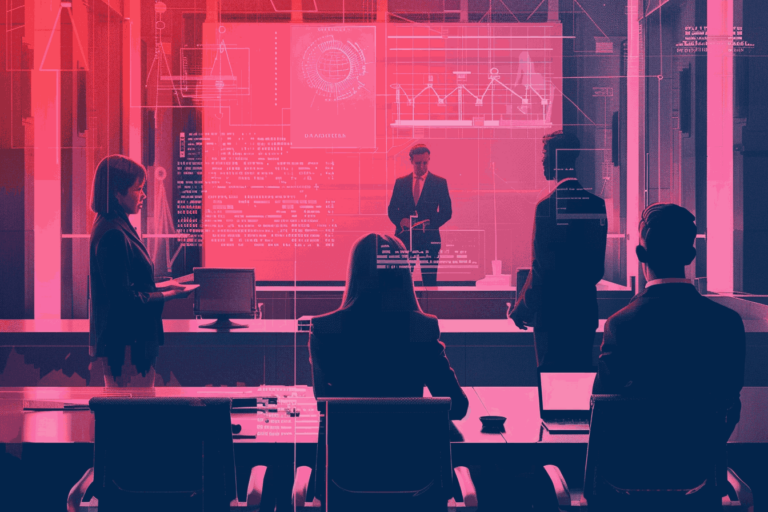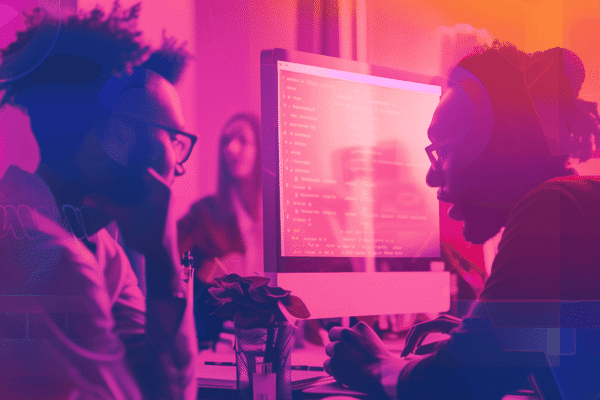65% of lawyers believe AI will help with research and legal searches, while 56% say it will help them with drafting documents.
80% of law firm partners believe that AI "should" be used in the work of law firms.
Generative artificial intelligence has made a strong entry into law firms. Organically, by exploring tools, even using them in their work, or simply hearing about them, lawyers have gotten a taste of this technology. In several surveys, lawyers were asked what they think about the use of AI in their work.
While many of them certainly see opportunities to increase efficiency, some also express caution regarding potential risks. In the 2023 Tech GC Report by legal technology solutions provider Juro, 64% of respondents stated that their firm is already using or planning to use AI. Furthermore, 55% of lawyers are convinced that this technology represents an opportunity for their company. However, a further 45% of lawyers are not so quick to jump the gun, stating that they will not use AI for legal matters but for internal processes in law firms.
A large majority of lawyers are convinced by AI
Opinions change, just like intentions, when it comes to strategic business decisions. However, the year 2023 was crucial for generative artificial intelligence such as ChatGPT, which generates texts, creates summaries, or responds to queries in an unprecedented way. That's why it's important what lawyers think about this technology, whether they are partners, associates, or freelancers.
Let us look at two more surveys to get a sense of what the adoption of AI in the legal sector will look like. The Thomson Reuters Institute, which closely monitors new technologies in the legal sector, found that 82% of lawyers believe that ChatGPT and generative AI can be used in the legal sector. That's a large majority. More significantly, however, 51% believe that the technology "should" be used in legal work. These are all findings from the ChatGPT and generative AI in law firms report.
Law firms are also involved in a different type of work that does not necessarily fit into the legal world. This includes internal communication or certain transactions with clients. And here the Thomson Reuters Institute study offers another overwhelming percentage. 72% of lawyers believe that AI "should" be used in law firms for non-legal tasks.
On the other hand, the report highlights that 62% of lawyers believe their law firms are exposed to risks related to the use of generative AI in their work. Only 2% state that their firm has no concerns about the use of technology in legal work. The Thomson Reuters Institute study was conducted in the United States, the United Kingdom, and Canada, but serves as a reference to understand the pulse of lawyers on this topic. However, the surveys were conducted in March 2023, and the last year has been intense in terms of AI adoption.
In the second half of the past year, several large law firms announced their own AI applications to optimize their operations. At the same time, there is a growing number of voices wanting to raise awareness of the need to incorporate new technologies into legal work. It is therefore to be expected that the acceptance rate is even higher today.
Another important report on this topic was Generative AI & the Legal Profession, published by LexisNexis. This study covers France in addition to the Anglo-Saxon countries surveyed by Thomson Reuters. For 47% of the lawyers surveyed in this study, AI will have "a significant or transformative impact on the practice of law". Only 7% believe that it will have no impact.
In addition, the LexisNexis report collects the opinions of lawyers on AI, broken down by role. For example, 65% of respondents are convinced that the technology will help with research and legal searches, while 56% believe it will help with document drafting. To a lesser extent, 44% said AI will be useful for document analysis and only 35% said they will use it for writing emails.
These are very high percentages when you consider that the study was conducted at a time when the technology was still relatively unknown. Furthermore, the percentage of lawyers who are concerned about ethical issues related to AI is very high at 88%.
Differences in the thinking of partners, associates, and lawyers
The Thomson Reuters report breaks down the sample by management level and experience of respondents. One conclusion is that law firm partners are the most convinced that AI "should" be used in the legal world. 59% of them are of this opinion, while the percentage drops to 52% among associates, and only 44% of other lawyers share this opinion.
Law firm partners are also the most convinced (80%) of the risks to which their firms are exposed through the use of AI. Interestingly, only 44% of associates express concern about this issue, while the proportion among lawyers rises to 56%.






